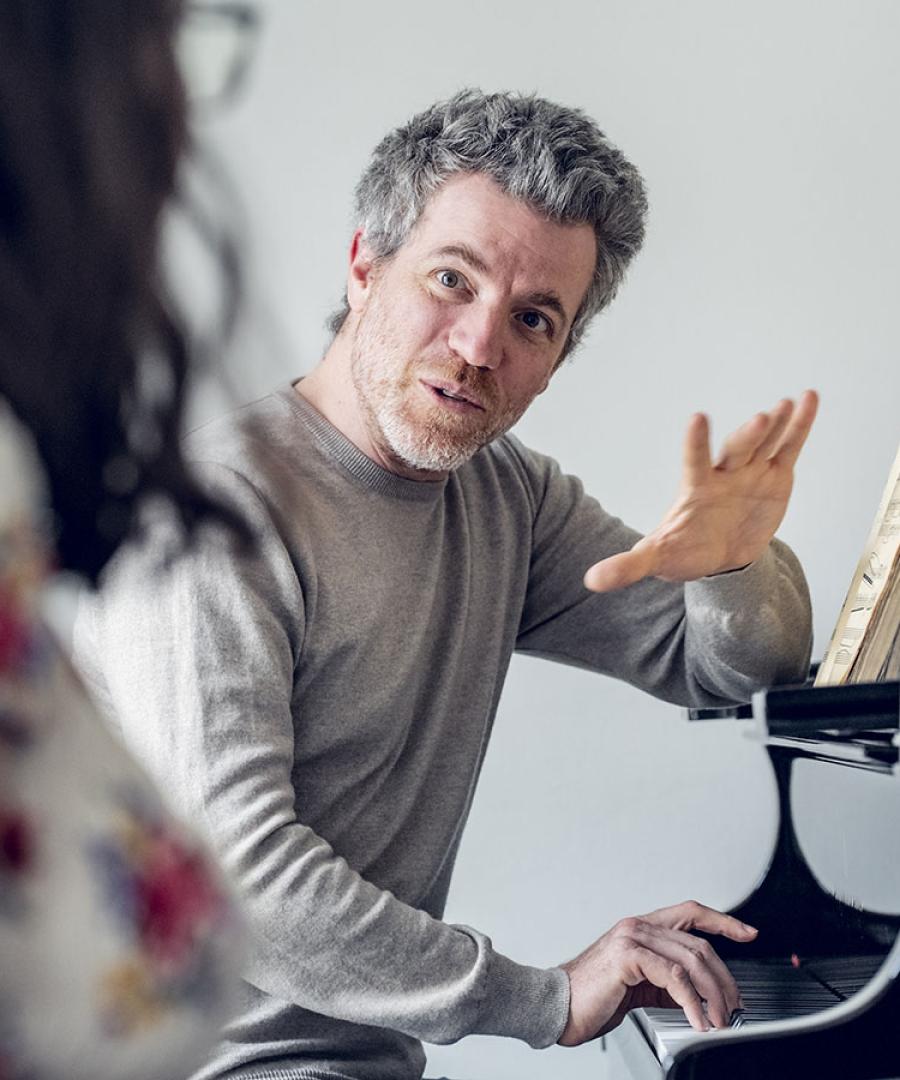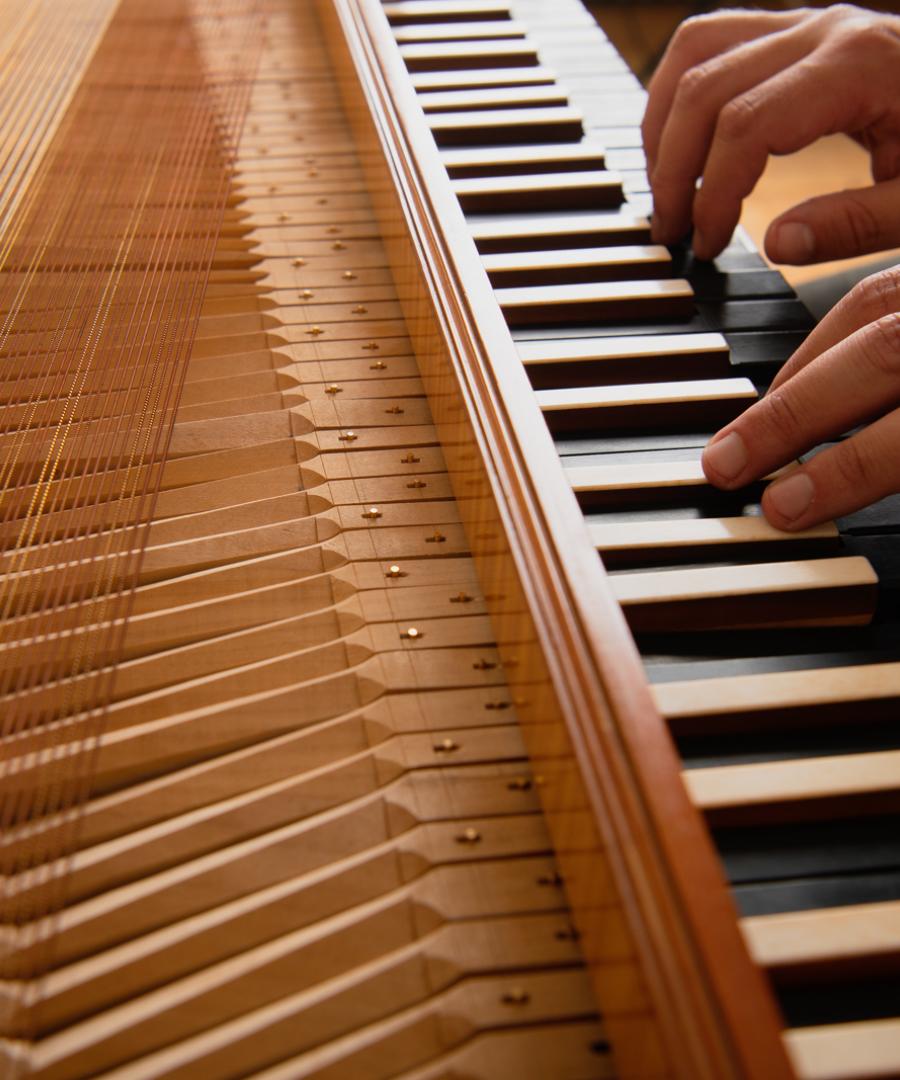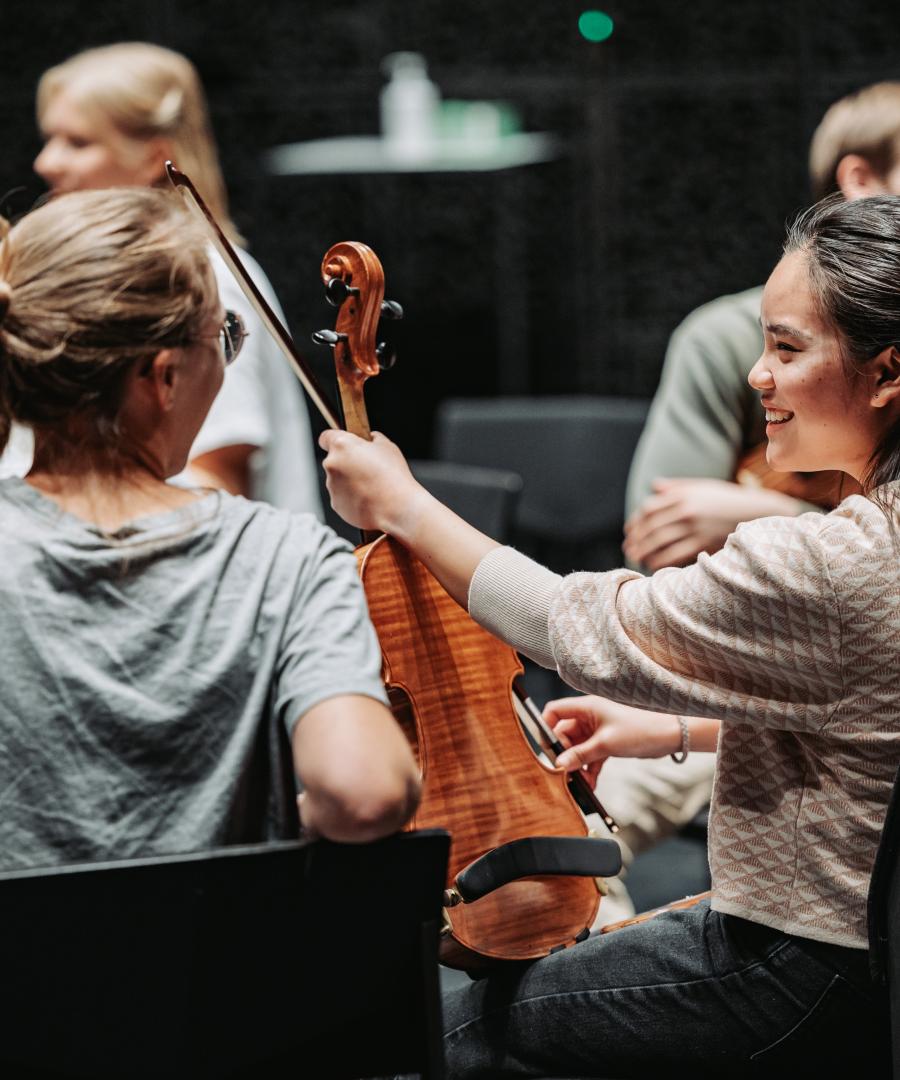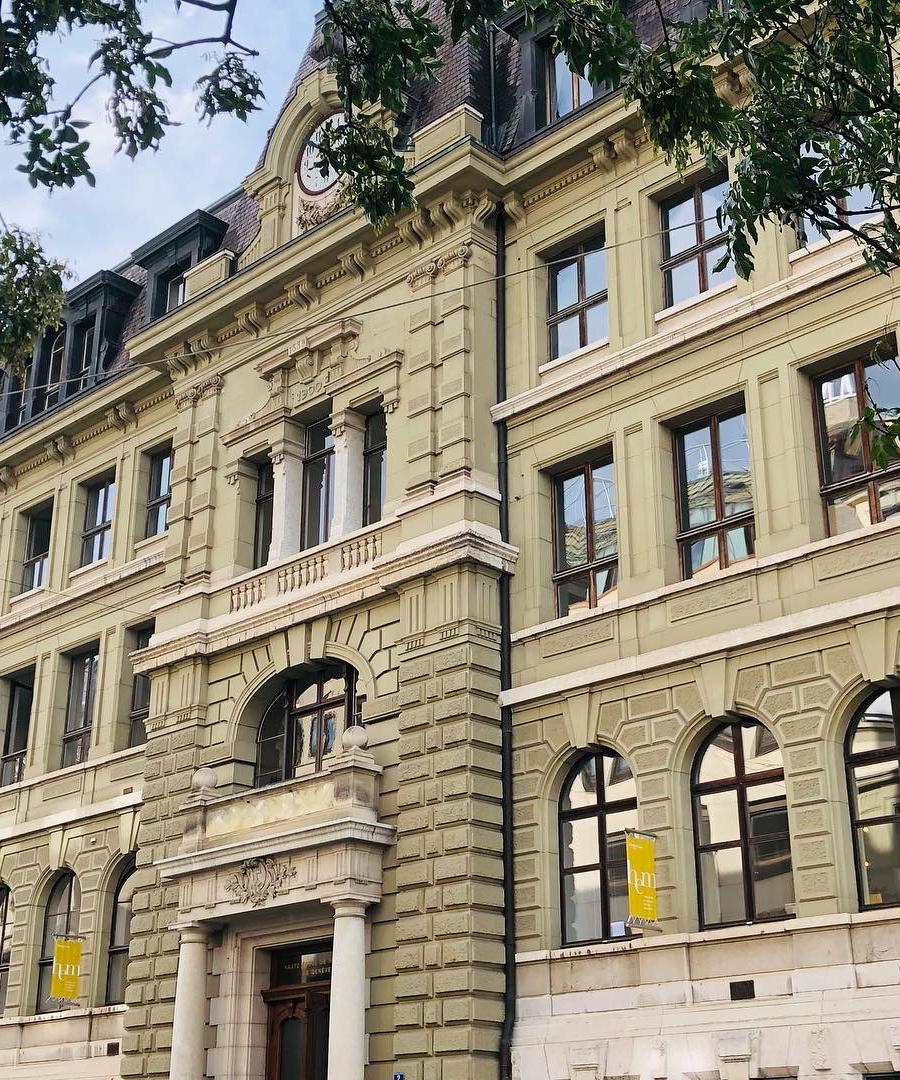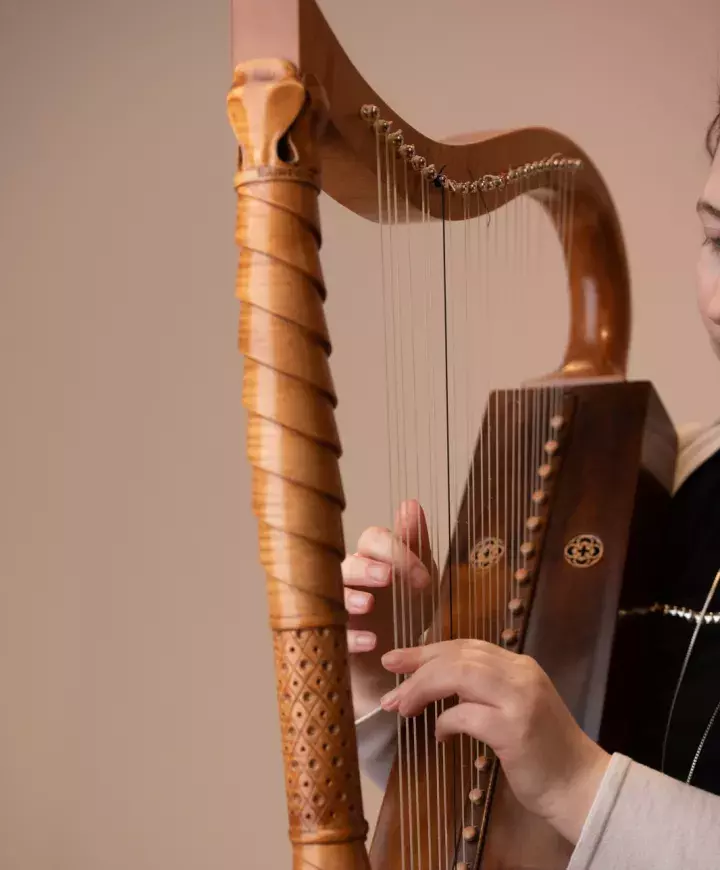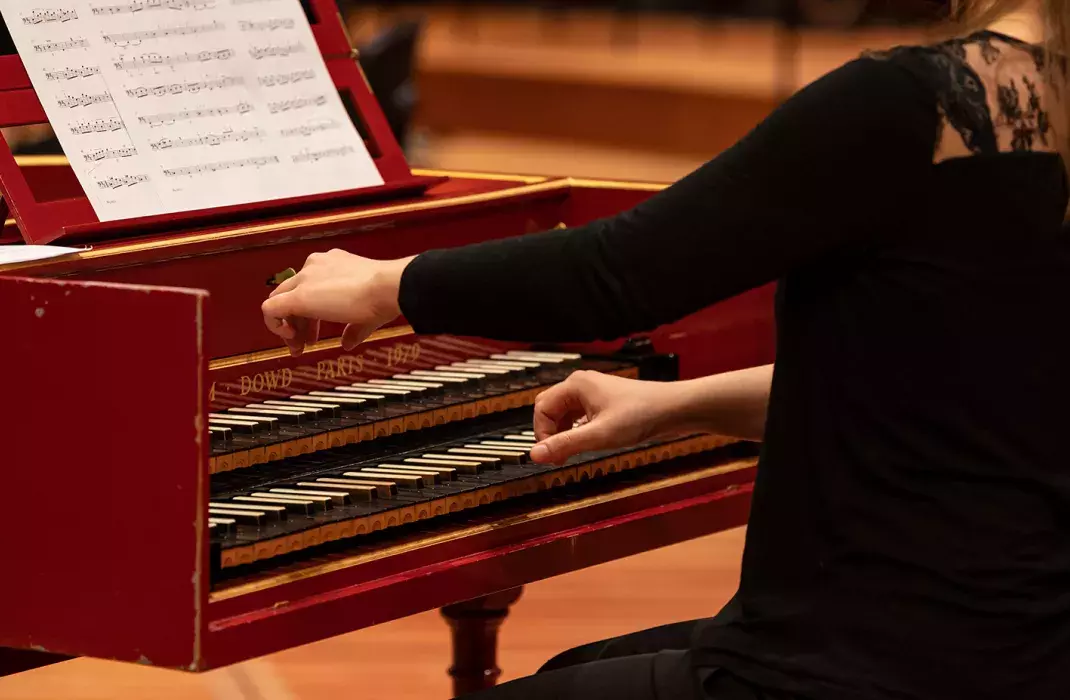- Studies
- Disciplines
- Research
- Events
- The school
Medieval Music
This field is open to students showing an ability to call upon the medieval repertoire, both from the point of view of philological research and that of artistic shaping.
By its very nature, medieval music requires musical and technical skills that are very specialized, but that differ from those required to be a good soloist, for example. It is essentially a repertoire for ensembles, and to play it, a faultless level of instrumental and vocal preparation is required, along with real cultural ecumenism and an extremely wide-ranging skill-set and level of knowledge. The diverse nature of the professional opportunities (from big international festivals to performing in a school environment) means that good performers of medieval music must be able to feel at home within a group, whilst at the same time having the skills that enable them to conduct an ensemble or lead an artistic project in an autonomous and creative way. To conduct this activity, they must have an inner supply of cultural, technical and theoretical knowledge that enables them (with support from specialists, whom they must be able to identify and contact) to construct an accomplished, personal language of interpretation.
Study plan
Abbreviations :
e = marked exam
p = validation by participation
rs = internship report
ce = co-assessment
cc = continuous assessment
SA = autumn semester
SP = spring semester
A1, A2, etc. = level of the course (first, second year, etc.)
S1, S2, etc. = level of the course (first, second semester, etc.)
Admission criteria
Students holding a Bachelor’s in music will be required to prove their level of musical, vocal or instrumental preparation, for the medieval repertoire. The medieval music field is also aimed at musicians with training in an instrument or in modern singing, given that the repertoires that range between the 9th and the 15th centuries feature very specific instrumental, theoretical and musical requirements which are also very unfamiliar for performers of early music.
Study programme
Primary training
The practice and the theory overlap to a particularly large extent in this Master’s course. The practice of medieval music requires performers to adopt the role of musician-researcher. The instrumental or vocal practice is accompanied by a research work presented upon admission to this Master’s course and supported by a tutor for the two years of study.
Special training
This module is aimed at plunging the student into medieval music theory, so that they can read the sources as originally written and grasp the specific features of musical languages from the Middle Ages.
Additional training
In order to support the construction of this identity as a musician-researcher, this module requires students to follow a Master’s research workshop. Moreover, thanks to an agreement between the HEM and the University of Geneva’s Faculty of letters, students of medieval music have the opportunity to choose, depending on the subject of their Master’s project, classes or seminars given in the Unige’s Department of French and Medieval Latin Languages and Literatures.
Master’s Project
The Master’s project runs throughout the two years that the training lasts. At the time of admission, students must have already set out the main outline of an artistic project that they will implement during their Master’s. During the first year, the project must be refined, and details of it are presented to a jury during the exam at the end of the first year. The project is carried out at the end of the Master’s course, whether for its practical and artistic dimension or for its theoretical aspects.
